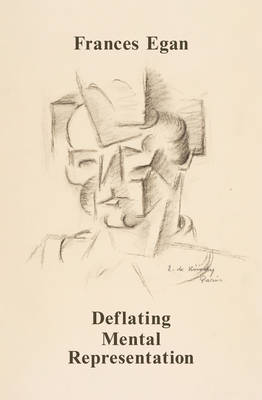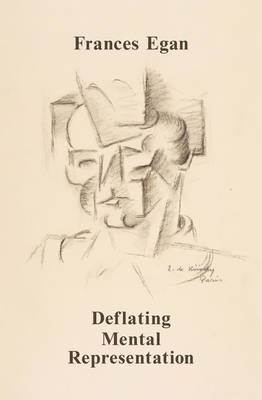
Vous voulez être sûr que vos cadeaux seront sous le sapin de Noël à temps? Nos magasins vous accueillent à bras ouverts. La plupart de nos magasins sont ouverts également les dimanches, vous pouvez vérifier les heures d'ouvertures sur notre site.
- Retrait gratuit dans votre magasin Club
- 7.000.000 titres dans notre catalogue
- Payer en toute sécurité
- Toujours un magasin près de chez vous
Vous voulez être sûr que vos cadeaux seront sous le sapin de Noël à temps? Nos magasins vous accueillent à bras ouverts. La plupart de nos magasins sont ouverts également les dimanches, vous pouvez vérifier les heures d'ouvertures sur notre site.
- Retrait gratuit dans votre magasin Club
- 7.000.0000 titres dans notre catalogue
- Payer en toute sécurité
- Toujours un magasin près de chez vous
51,45 €
+ 102 points
Description
A novel account of the explanatory role of representation in both the cognitive sciences and commonsense practice that preserves the virtues without the defects of the prevailing two views about mental representation. Philosophers of mind tend to hold one of two broad views about mental representation: they are either robustly realist about mental representations, taking them to have determinate, objective content independent of attributors' explanatory interests and goals, or they embrace some form of anti-realism, holding that mental representations are at best useful fictions. Neither view is satisfactory. In Deflating Mental Representation, Frances Egan develops and defends a distinctive third way--a view she calls a deflationary account of mental representation--that both resolves philosophical worries about content and best fits actual practice in science and everyday life. According to Egan's deflationary account, appeal to mental representation does indeed pick out causes of behavior, but the attribution of content to these causes is best understood as a pragmatically motivated gloss, justified in part by attributors' explanatory interests and goals. Content plays an explanatory role in the deflationary account, but one quite different than that assumed by robust representational realists. Egan also develops a novel account of perceptual experience as a kind of modeling of our inner lives by aspects of external reality and explains the role of appeal to representation in this process.
Spécifications
Parties prenantes
- Auteur(s) :
- Editeur:
Contenu
- Nombre de pages :
- 192
- Langue:
- Anglais
- Collection :
Caractéristiques
- EAN:
- 9780262551601
- Date de parution :
- 11-03-25
- Format:
- Livre broché
- Format numérique:
- Trade paperback (VS)
- Dimensions :
- 133 mm x 203 mm
- Poids :
- 368 g







